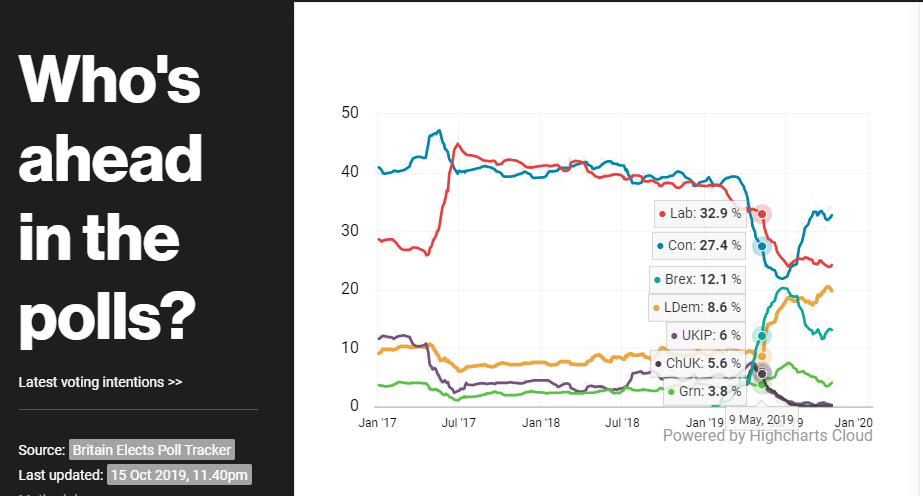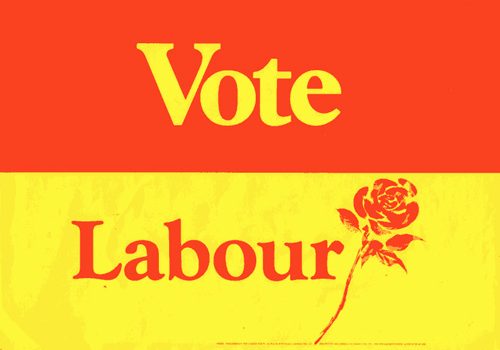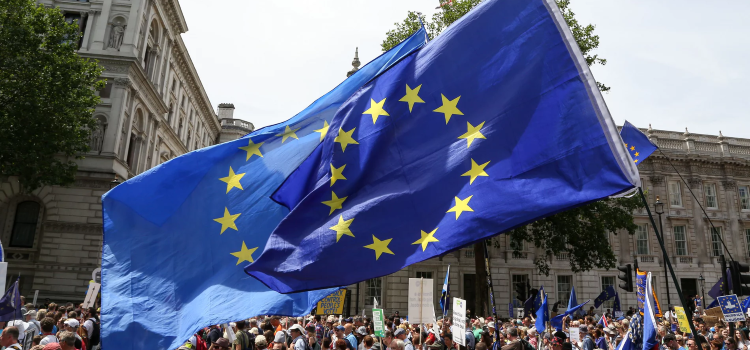Within the Labour Party, there is a debate about the position to be taken with respect to Brexit due to electoral considerations.
Here is a chart showing the polling results; what interests me is the change of fortune on the 9th May. On the 1st of May, Labour’s NEC refused to change it’s policy of an election before a referendum on remain. At the time, Labour were first in the Polls, two months later, we lost half our MEPs and slipped to 2nd losing between 10 – 15% of our predicted vote share.

How accurate are the polls?
Here are three links which talk about the methodologies used by the polling companies, the “House Effects” even tries to quantify the statistical bias in these methods. Fact is some polls favour Labour, some favour the Tories, but non have recently said that Labour is ahead. Sadly my favourite seat predictor at flavible is currently offline, but provided we stay above 25% and the Brexig Party & LibDems overperform, the most liklely result is a Labour minority govenment.
Others have argued that the methodology biases put the polling houses into two classes, neither are owned by the Tories but the bias is clear. Lets hope that those who say that we can still out campaign the Tories are right, but they won’t be as shit as May and we won’t take them by surprise on social media.
We need to remember how most polls got it wrong in 2017 and ‘House Effects’ examines that.
It’s going to be hard.
ooOOOoo
- ‘House effects’ and how to read the polling tea leaves…, at Southampton Politics
- Latest voting intention and the difference between the polls, at UK Polling Report
- A Journalist’s Guide To Opinion Polls at the British Polling Council.
…









